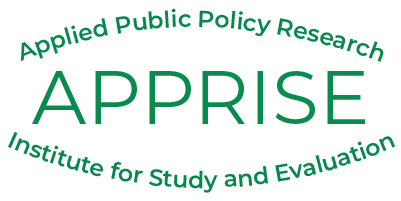APPRISE Technical Assistance Projects
APPRISE conducted a study on the non-energy benefits (NEBs) of the Energy Savings Assistance (ESA) Program. The ESA Program provides no-cost weatherization and energy efficiency measures to achieve energy savings and improved health, comfort and safety for low-income households served by the IOUs in CA. This study reviewed the NEBs proposed in a previous study and developed a streamlined model for estimating the value of the NEBs.
Many low-income usage reduction programs are facing increasing challenges serving customers due to the prevalence of health and safety problems that prevent major measures from being installed. As a result of serious issues in the home, customers must be deferred or are treated with only minor services, and high-usage customers with good potential for savings do not participate or only achieve low energy savings. This research assessed the circumstances under which additional cost-effective health and safety spending can be invested to achieve greater savings for low-income customers and the program as a whole.
The Federal Community Services Block Grant (CSBG) Program provides funding to alleviate the causes and conditions of poverty in communities through services that address employment, income management, education, housing, nutrition, and health. APPRISE is working with the U.S. Department of Health & Human Services, Division of Community Assistance to develop a Performance Management Website and Data Warehouse that facilitates the analysis of performance measurement data reported by grantees of the CSBG Program. APPRISE is also providing training and technical assistance to the Division of Community Assistance, grantees, and other partners of the CSBG Program in the use of these performance management resources.
The Indiana Housing and Community Development Authority (IHCDA) contracted with APPRISE to conduct research and provide recommendations on how they could improve the application and eligibility determination process for their Energy Assistance Program (EAP). APPRISE undertook an analysis of IHCDA’s current policy, identified EAP pain points and barriers, conducted research on other states’ LIHEAP administration, and developed policy and procedures recommendations for IHCDA. The proposed changes include shorter- and longer-term revisions to policy that will reduce client burden, improve program integrity, and result in larger reductions in participant energy burden.
The Maryland Department of Housing and Community Development’s (DHCD) EmPOWER Limited-Income Programs install energy efficiency measures and perform related repairs to help participants reduce energy usage and improve their health and safety. APPRISE is providing consulting services on the Single-Family Low-Income Energy Efficiency Program (LIEEP) and the Multi-Family Energy Efficiency and Housing Affordability Program (MEEHA). The work scope includes advising DHCD on the design and delivery of these programs, reviewing DHCD’s proposed plans, reviewing cost-effectiveness inputs and assumptions, and assessing performance metrics.
The Community Service Block Grant Program provides funding to alleviate the causes and conditions of poverty in communities through services that address employment, income management, education, housing, nutrition, and health. APPRISE supported the National Association of State Community Service Programs in the development of a Data Warehouse for the federal Community Services Block Grant (CSBG) program. We developed tools for reporting, validation, and analysis of performance measure data at the local, state, territory, and national level. Additionally, APPRISE supported state efforts to collect and report new performance metrics established by the Department of Health and Human Services, Office of Community Services. This project has led to improved data quality, an enhanced understanding of CSBG outcomes, and will be used to inform program decision-making.
The New Jersey Statewide Heating Assistance and Referral for Energy Services (NJ SHARES) is a nonprofit corporation organized to provide assistance to individuals and families living in New Jersey who are in need of temporary help paying their energy bills. APPRISE conducted an annual impact evaluation of the New Jersey SHARES program from 2006 through 2019. The evaluations included analysis of administrative and utility data to assess the program’s impact on maintenance of electric and gas service and on energy bill payment. Some of the evaluations also included surveys and in-depth participant interviews to assess whether the crises had been resolved, what additional assistance was needed, and the interest and potential for energy efficiency program participation.
